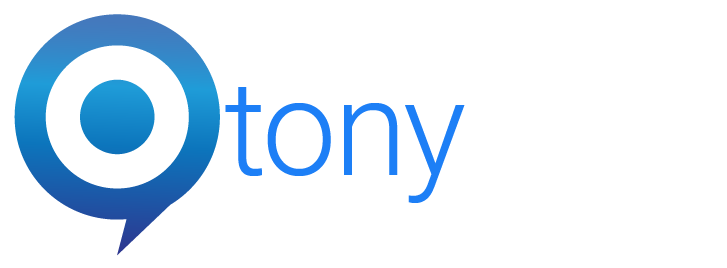EOS International empowers rural families in Central America by providing simple, inexpensive solutions that improve health, generate income, and provide access to appropriate technology.

Wes Meier, EOS International
Wes Meir studied mechanical engineering at Iowa State University. In his junior year, he took a course with an international focus. He and his fellow students were challenged with creating a laptop that would work in Western Africa. To figure out the design criteria, Wes typed “What is West Africa like?” into Google.
In his senior year, he signed up for a second international design course. This time, he was assigned the role of designing a water valve. Unlike his junior year, he traveled to Mali where he spent several months on the ground learning about the specific needs of the local community. His first valve designs worked technically, but they did not fit the specific needs of the local community. “That’s where I learned, human-centered design is the most important component of the design process,” Wes says. “If you’re going to design for the long term, you have to design with [customers].”
Wes also says of his time in Mali, “It gave me an opportunity to see that my engineering skills can go towards a greater good.” As Wes ended his senior year, he declined a job offer and joined the Peace Corps.
Before Wes joined the Peace Corps, he and some friends formed an organization. They thought that they would design new solutions for the people of rural Nicaragua. But, after living in Nicaragua for more than two years, Wes realized that solutions already exist for almost all the challenges he encountered.
Wes spent more than two years volunteering in Nicaragua in the agricultural sector. There, he applied human-centered design to solve problems for local families. “That is where I really learned that, I need to get the involvement of the consumer, and that was the most critical part.” He was practicing human-centered design. But it wasn’t until he returned to the United States and took courses from IDEO that he had language he could use and repeatable processes he could apply.
Water systems exist for problems with contaminated water. Cook stoves exist that make cooking more efficient and less polluting. And the solar technology exists that provides electricity for off-grid communities. “So, we pivoted and focused on the distribution, of the promotion, and on the implementation of these simple solutions.”
The opportunity at the Peace Corps allowed Wes to create the network he needed to start EOS International. EOS International targets rural families in countries like Nicaragua to improve lives through appropriate technologies.
They work to provide clean water. Wes says, “Here we see by water as a normal way of life.” For the people of rural Nicaragua, running water is a luxury and is often is contaminated. EOS International installs simple water purifiers that can treat the water at the source and provide water for up to 1,000 people. A three-year study conducted with the Ministry of Health found a 61% decrease in diarrheal disease related to water.
Another example of a core technology is cooking stoves. Many people in Nicaragua still use firewood as a cooking source. The firewood is burned in inefficient stoves. This results in time spent gathering more wood. It also results in indoor pollution. By installing more efficient stoves the people of rural Nicaragua are able to reduce the amount of smoke they breathe and reduce time to gather wood. The people who use these stoves have reduced their firewood consumption by 1 ½ million pounds. Wes and the team have also noticed a surprising side benefit. “Of all the ovens we have installed, we found that 42% of the people started businesses with them. Giving people the opportunity to start their own business and make their own money is really empowering.”
A third technology that is being implemented is solar panels. “The benefit to them is not the renewable component of the solar panel but the access to electricity,” Wes explains. The grid electricity may never reach many of these remote areas, and these panels have been a huge benefit. Just allowing homes to have three to four hours of extra power each night is a game changer.
Social Entrepreneurship Quotes from Wes Meir:
[spp-tweet tweet=”“We’re focusing on rural families.” @WesleyMeier, @EOS_Intl”]
[spp-tweet tweet=”“We have a portfolio of six core solutions that we focus on.” @WesleyMeier, @EOS_Intl”]
“Having those engineering skills has been critical.”
[spp-tweet tweet=”“It’s not something I had planned.” @WesleyMeier, @EOS_Intl”]
[spp-tweet tweet=”“Human centered design is the most important component of the design process.” @WesleyMeier, @EOS_Intl”]
[spp-tweet tweet=”“I need to get the involvement and the interaction with the consumer.” @WesleyMeier, @EOS_Intl”]
[spp-tweet tweet=”“We want as many people to have access to these technologies as possible.” @WesleyMeier, @EOS_Intl”]
“Two-thirds of the people are now not going to the hospital because they are sick.”
[spp-tweet tweet=”“We are focusing on rural families and needs that these rural families have.” @WesleyMeier, @EOS_Intl”]
[spp-tweet tweet=”“We empower them for long-term sustainability.” @WesleyMeier, @EOS_Intl”]
Social Entrepreneurship Resources:
- EOS International: http://eosinternational.org/
- EOS International on Twitter: https://twitter.com/EOS_Intl
- EOS International on Facebook: https://www.facebook.com/eosintl
- EOS International on Instagram: https://www.instagram.com/eos_intl/
- A Virtual Design Thinking Course: http://bit.ly/DTVCC
- Book: Crazy Good Advice: 10 Lessons Learned from 150 Leading Social Entrepreneurs: http://tonyloyd.com/book

You must be logged in to post a comment.